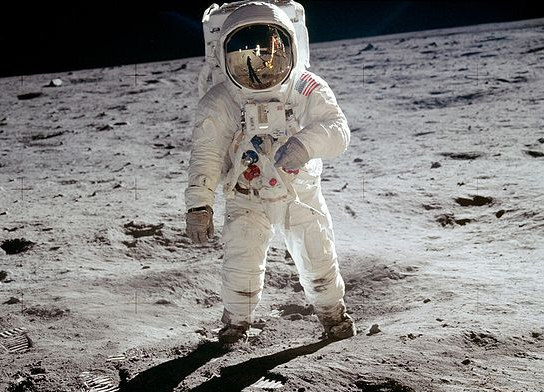Polychronicon 137: Bringing space travel down to Earth
Article

The Apollo programme and the 1960s-70s 'space age'
It nearly began like this: ‘On Christmas Eve 1968, two episcopalians and a Roman Catholic were in orbit around the Moon.' I was writing a book called Earthrise, about the first views of Earth from space. Most other books about the Apollo programme of the 1960s and 1970s took an ‘onwards and upwards' approach. They accepted that space travel was (as its enthusiasts proclaimed) a ‘giant leap' into a high-tech future, and assumed that space was important, not the Earth.
Yet when the crew of Apollo 8 made the first voyage to the Moon and broadcast from lunar orbit to the largest TV audience in history they chose not to proclaim the triumph of science but to read the creation story from The Book of Genesis: ‘In the beginning God created the heaven and the Earth ... and it was good'. So why not start from Earth and call them Christians? I bottled out and put ‘astronauts'. This was pointless, however: who else but astronauts would be in orbit round the Moon? What I should have written was ‘travellers', for that is what they were: highly specialised, highly expensive and high-profile ones but travellers nonetheless. Like many before them they went on a journey, they explored, they took photos and they came back. ‘Travellers' took them out of the imaginary future into which they had been conscripted and put them back in mainstream history, where they now belong.
This resource is FREE for Student HA Members.
Non HA Members can get instant access for £2.75

